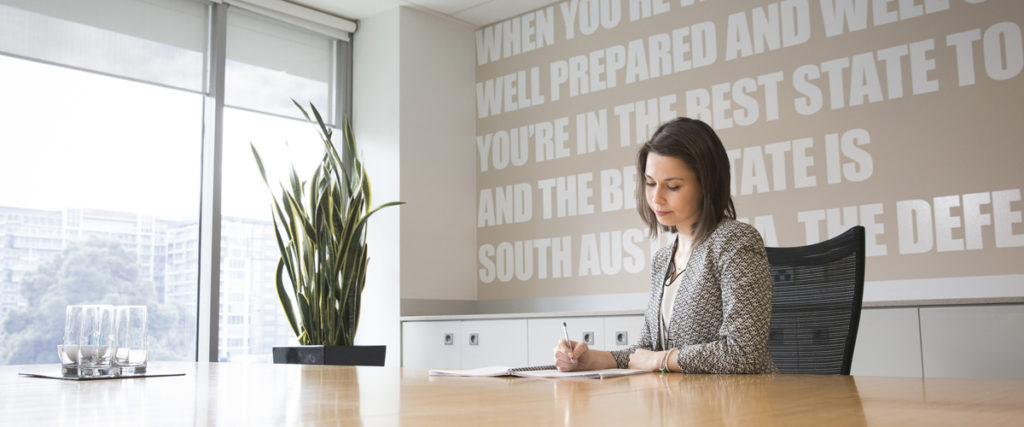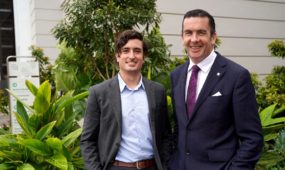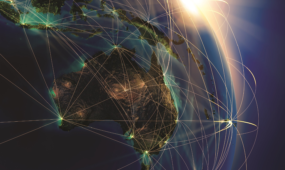National agency will double Australia's space industry
Defence
A national space agency in Australia would more than double the turnover and number of people employed in the industry in its first eight years, a new report has found.

Sign up to receive notifications about new stories in this category.
Thank you for subscribing to story notifications.

Italian economist Annalisa Piva has just completed a three-month stint with Defence South Australia, during which she produced a 125-page report on the benefits of establishing a National Australian Space Agency.
Australia is one of only two OECD nations alongside Iceland without a space agency.
However, a number of groups including the Space Industry Association of Australia and the South Australian Government have been lobbying hard for a dedicated national agency just weeks out from the International Astronautical Congress to be held in the South Australian capital Adelaide.
Piva compared the Canadian and British space agencies as case studies for her research report, arguing both countries were best practice predictors for a space agency in Australia.
She consulted with noted space lawyer and Space Industry Association of Australia (SIAA) Chair Michael Davis while compiling her report.
The report found that if Australia could replicate the performance of the UK space economy in its first eight years after the establishment of a national space agency in 2010, 11,700 jobs and an additional AU$5.3 billion would be generated annually, a 132 per cent improvement on current figures.
This would take the annual turnover of the industry in Australia from AU$4 billion this year to AU$9.3 billion in 2025 and the number of people working in the industry from 11,500 to 23,198.
“The number of jobs in the space industry is expected to more than double by 2025,” Piva, pictured below, said.

The report says Australia’s approach to space activities is currently passive and regulatory, and the nation does little to direct them in a way to take advantage of new opportunities. It says Australia is failing to oversee and develop nationally important space services and invest to exploit the booming multi-billion dollar space market.
No longer restricted to being the exclusive domain of astronauts and rocket scientists, the space industry is proving to be an open door for a variety of occupations, from lawyers, economists, IT professionals to public relations officers and sales consultants.
“Working in the space sector doesn’t mean you have to work in space literally or working only to produce technology for space, because there are so many other things you can do,” Piva a masters student at Università Commerciale Luigi Bocconi in Milan said.
Up to 4000 delegates are expected to attend the IAC from September 25-29 including the heads of all the major space agencies and Space X founder and CEO Elon Musk.
The Space Industry Association of Australia launched a White Paper in March calling on the Australian Government to establish a national space agency.
The association had hoped for an announcement just before or during the congress.
However, the announcement in July of a Federal Government review into the long-term plan for the sector in Australia, which will not be complete until March means an imminent meaningful pledge of an Australian apace agency is unlikely.
SIAA secretary Peter Nikoloff said the association would work to ensure discussions about the establishment of an Australian Space Agency took place at the September 25-29 event.
“We’ll be doing as much as we can to make sure the appropriate players are getting together and discussions are happening,” he said.
“The whole issue of the space agency is front and centre – the media is talking about it, the state governments are onto it.”
The South Australian Government plans to use Piva’s report, titled Societal and Economic Benefits of a Dedicated National Space Agency for Australia, to help push for the formation of a national agency.
Last month South Australia also signed a memoriam of understanding with the Australian Capital Territory to work together to achieve the common goal.
The agreement forms a new chapter in the state’s long history in the space industry, which started when the Woomera Test Range was established 70 years ago in 1947 about 450km north of Adelaide.
“Along with our ACT counterparts, we are strongly advocating for an Australian Space Agency, with an operational centre in Adelaide which will boost our competitiveness and create a thriving national space industry,” South Australian Defence Industries Minister Martin Hamilton-Smith said.
“This fits with our established space heritage, dating back to the Woomera range in the 1940s.”
Jump to next article



